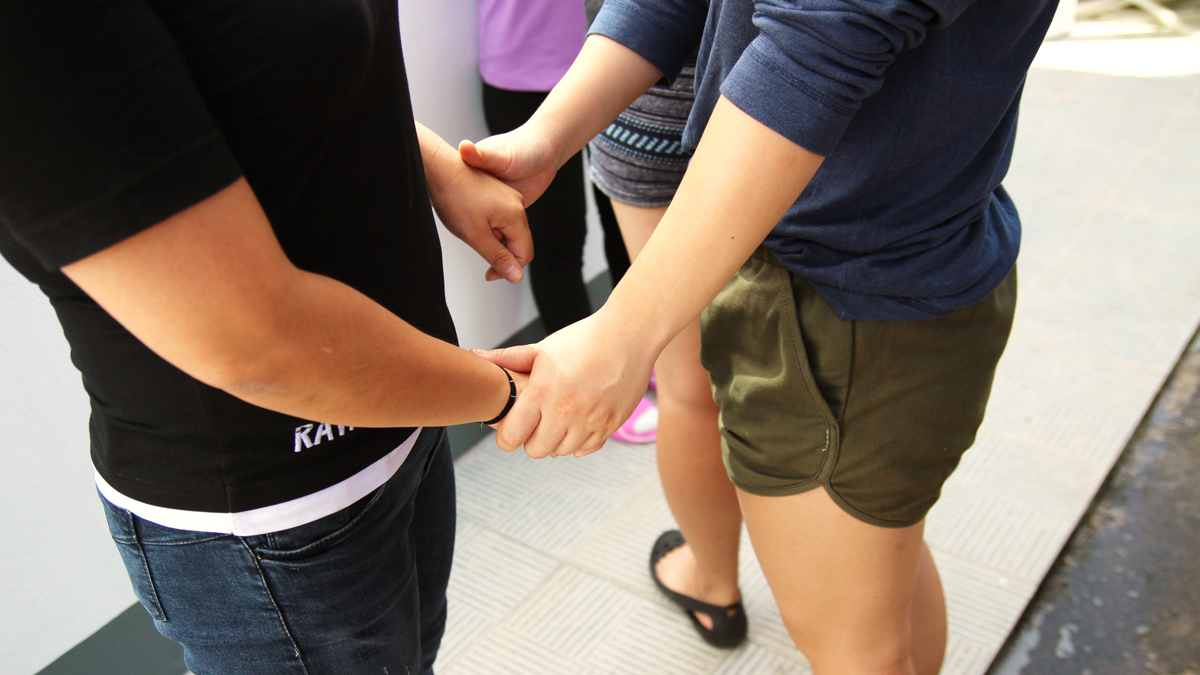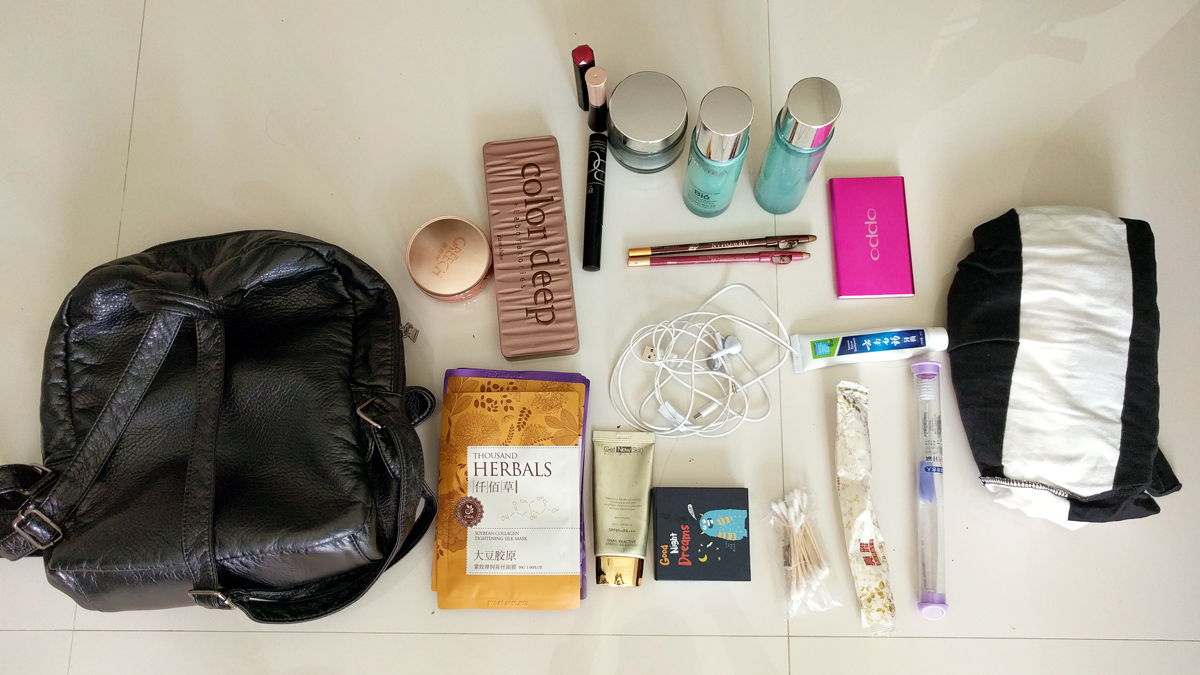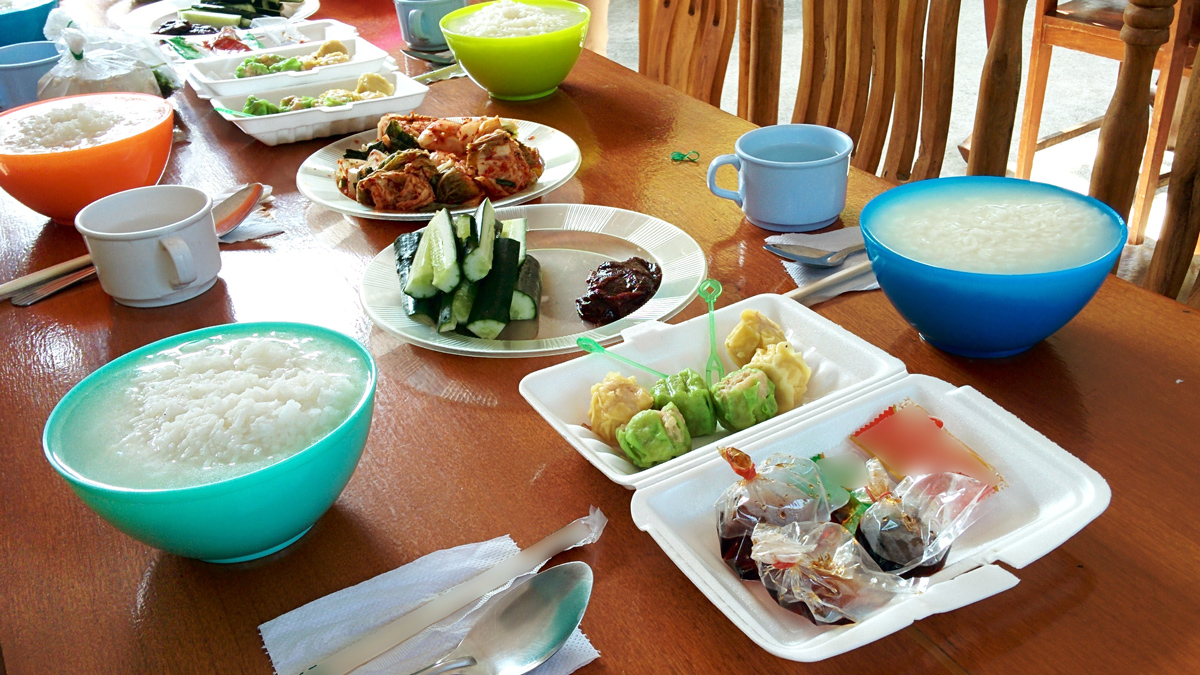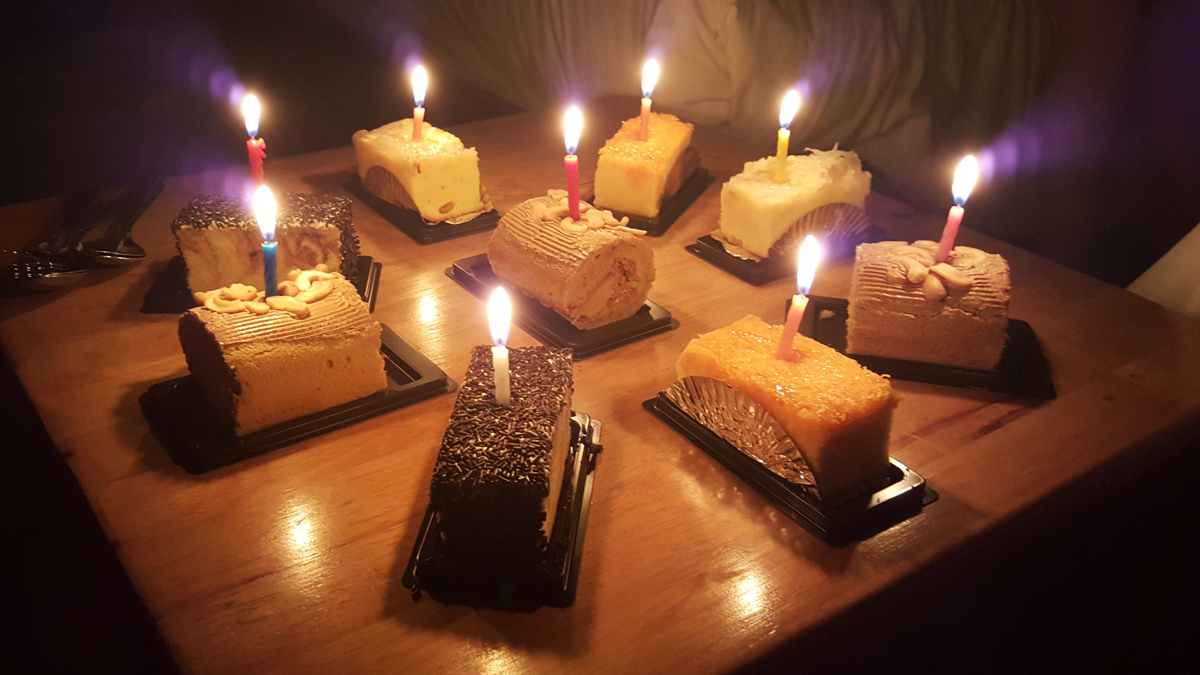An Exclusive Interview With LiNK’s Field Manager
.jpg)
Over 1,200 North Korean refugees have reached freedom through our secret rescue routes. Michael Kim* is LiNK’s Field Manager and has overseen dozens of rescue missions, helping hundreds of these refugees safely reach freedom. Here is an exclusive interview with Michael, only for Liberty Donors like you! *Name changed for security reasons
Why did you want to work on the North Korean issue?
Michael: I went to university in South Korea and there I met North Koreans for the first time. I became really good friends with them without knowing they were from North Korea. As we grew closer, I grew more aware and informed. I also studied Political Science and International Relations, so I wanted to be more involved in the North Korean issue..
After college I went to serve in the South Korean military. The mandatory military service is a constant reminder of the “other” Korea – a Korea where people have drastically different living standards. Basically everything you do in the military is preparing for a potential war with North Korea. They were seen as “the enemy.” But I had friends who were from North Korea. I realized I should do something to change the situation on the Korean peninsula.
What made you want to work in the field?
Michael: I planned to go to graduate school but then a position in the field opened. I realized it was a once-in-a-lifetime opportunity and a really meaningful role. I ultimately decided to apply because I trusted LiNK and the work. It was a special opportunity because I would get to meet North Korean refugees during the most vulnerable state of their journeys and represent LiNK and the supporters who care about them.
What is the hardest part of your job?
Michael: It’s hands down the isolation. For security reasons, we can’t be open about our work. In Southeast Asia, we meet people but can’t reveal why we’re there or what we do. We have to come up with cover stories and when people ask too many questions, we shut them down. “Ah it’s just work. It’s boring. You don’t want to know.” It makes it hard to build meaningful connections outside of work.
Sometimes it takes a toll. Because there are times you do want to share your life with people. But this is why the field team is so close. Everyone shares everything so it’s like a family.
.jpg)
What is your favorite part of the job?
Michael: Meeting our North Korean friends. When we meet, we tell them, “We’re honored to meet you.” And we mean it. We’re thankful and thrilled they made it this far and had the courage to seek freedom.
When you meet North Korean refugees in the field, what do they need the most?
Michael: When we meet them in person for the first time, they’re physically and mentally exhausted because of the long and dangerous journey they just went through. The fact that they made it to Southeast Asia is such a feat.
We focus on three things.
First, we want to support them physically and mentally. We make sure they get rest and create a safe space for them to recuperate.Even just meeting us gives the North Korean refugees a sense of relief. Throughout their journeys, they get directions over the phone or through people to go to pick up spots. So when they reach the final destination and hear the South Korean accent for the first time, it’s like a sign of freedom. They’ve only heard the accent in South Korean movies and dramas.Many of them have not been able to speak their native language freely since they left North Korea so they can finally relax and speak freely. As they share their journeys with us, we build personal relationships with them and it gives them so much encouragement and support.
Second, we do a quality control check. We ask them if anyone on their journey demanded money from them or treated them without dignity or respect. Because of our donor’s generous support refugees do not have to pay to be rescued by LiNK and we want to ensure refugees were not asked to pay by anyone on their route.
Lastly, we give them information. We let them know what to expect during the resettlement process and answer their questions. In some cases, refugees don’t know where they’re going because they’re trying to reunite with family members. We try to fill in the blanks and help them gain a fuller picture of what’s next.
.jpg)
What are some questions you get from North Korean refugees?
Michael: If there’s a refugee who just left North Korea, they might ask really random questions. Everything is so new to them. They ask about the traffic lights or the names of trees in Southeast Asia. Many of them want to learn how to speak in a South Korean accent.
They also ask really pragmatic questions like, “What should I do in South Korea to make money so that I can bring my children out of North Korea?” This is a really common question.
One question someone asked was, “Can I travel abroad? And how long can I do that before the government wants me back in the country?” We explain to them that as long as they have a visa to the country they’re going, the South Korean government doesn’t care how long they’re gone!
What are surprising things you hear from North Korean refugees about North Korea?
Michael: The living conditions in North Korea are so bad. It shouldn’t surprise us anymore but every time you hear about it, it’s not easy. For example, they tell us that they were working for the government but were basically forced into slave labor. They’re doing this hard labor but they’re not getting paid by the government. In order to survive, they have to do something on the side.
Another grim reality is military life. North Korean men have to serve 10 years in the military and it’s not like life is easy there. People have said that they defected because they think about their little boys' futures. They know that once their son turns 18, he has to go to the military. By the time he returns, he’ll be 30. And they will miss out on all their time together.
What do most North Korean refugees want to do once they reach freedom?
Michael: It depends. Parents just want a better future for their children. Most people really want to learn. They’re hungry for knowledge. They want to learn how things are outside of North Korea and in the world. When we ask them what they want to do, most will tell you that “I don't know enough to know what I want. I just want to go there and see what options I have.”
.jpg)
What field experience has stayed with you?
Michael: Refugees don’t fully grasp the idea of having donors supporting the North Korean people unconditionally. They end up asking, “What do they really get out of this? Why are they doing this? Is this the government?” It’s really hard to understand that individuals on the other side of the world care enough to support them.
But occasionally, we have people who fully understand and they feel so moved and inspired that they in turn want to participate in this movement. And that is really powerful. Seeing them go from a position of getting help to wanting to do something is always powerful to witness. It’s one thing to be grateful, but it’s another to say, “Now it’s my turn. Once I get to South Korea, this is what I’m going to do. I’m going to find ways to contribute.” They tell us that our work has opened their minds and they want to help.
Is there anything you want to say to our donors?
Michael: We can solely focus on what is best for the North Korean refugees only because we have so many generous people who support what we’re doing in the field. We do our best to be good stewards, but the fact that we can just focus on our work and what we can do better instead of worrying about funding is liberating. Because we’re in the field, we don’t really get to meet donors, but everything that we do - it reminds us that it’s only possible because of our donors and their support. We feel the support and we are so grateful!
Thanks to your monthly gift, Michael and his team are able to help rescue North Korean refugees at a moment’s notice. We’re so thankful for your continued support! Thank you for standing alongside the North Korean people!
Women’s History Month: Honoring the Bravery of North Korean Women
By: Jennifer Kim
Jennifer* is Liberty in North Korea’s Field Manager. Over the years, she’s carefully stewarded our secret rescue routes and helped countless North Korean refugees reach safety and freedom.
Approximately 70% of North Korean defectors are women. Throughout their journey, they face unimaginable challenges, including human trafficking, confinement, and sexual violence.
For Women’s History Month this year, we asked Jennifer to share her experiences supporting North Korean women who have made the brave decision to escape, and bring light to the stories of real people behind the numbers and statistics.

A Transformative First Mission
When I first began this line of work, I was filled with both excitement and anxiety. “Will I be able to connect well with these people?” “Will the field be too dangerous?” Even in my position as a staff member, there were times when the situations we encountered felt riskier because I was a woman.
On my first mission, the group we brought to safety were all women. From their small requests, like asking for sanitary pads, to moments where they cautiously shared their harrowing experiences of human trafficking in China, I found that we could connect on a deeper level because I was also a woman. I realized my role wasn’t just to be a staff member, but to stand by these people as they needed me, as a fellow woman. From then on, the fear I had initially felt about this work transformed into conviction.
North Korean Women At the Forefront of Resistance and Survival
After meeting many North Korean women defectors, I’ve come to learn that there are unique challenges and experiences that only they face. Women in North Korea are not as restricted to job assignments as men, so they’re the ones actively engaged in informal economic activities. They’re running their own black-market businesses and trading smuggled goods, shifting economic power from the regime into the hands of the ordinary people.
Women also make up the majority of North Korean defectors at over 70%. In freedom, they’re leading advocacy efforts and raising awareness for this issue.
I've come to think that perhaps women in North Korean society were the first and most desperate to stand up in resistance.

At the same time, the reality is that women are more vulnerable to gender violence and crime. The moment they cross the North Korean border and set foot on Chinese soil, their precarious legal status and the fact that they are women become risk factors that can lead to human trafficking, sexual exploitation, and forced prostitution. If these dangerous situations lead to pregnancy and childbirth, women often remain in China for years, even decades, weighed down by the conflicting emotions of their longing for freedom and their maternal instincts.
All of the women I met during my first rescue mission were survivors of being trafficked into forced marriages. While there are some cases where these women meet kind families and live in a relatively less dangerous environment, most have to endure difficult lives. One woman who we rescued in 2024 said that in the early stages of her life in China, she was confined and tied up in a single room by the man who bought her. Others had to do forced labor in one of China’s many factories.
Not a News Story, But a Person’s Story
About ten years ago, I watched a video of a woman my age testifying about the hardships and sexual violence she experienced during her defection from North Korea. As a South Korean, I couldn't believe that such things were happening just across the border. Shocked and ashamed of my indifference, I cried for a long time, then resolved to do something.
North Korea used to be something I only saw and heard about through a TV screen. Now those distant news stories have become the personal experiences of the North Korean mothers and friends I’ve met in the field.
At first, I simply wanted to help as best I could. But as time went on and I met more North Koreans, my perspective gradually changed. Now, I feel like I'm not so much ‘helping’ as I am meeting incredible superwomen who have overcome tremendous adversity.
My role is to constantly remind them of their resilience and potential, so they don't forget it themselves.

“This is My First Time Being Treated Like a Queen”
After a successful mission, our team ensures our newly arrived North Korean friends have a proper meal, get some rest, and receive basic necessities. On one occasion, one woman told me, “This is the first time in my life that I have been treated like a queen.”
She had just reached freedom after ten years in a forced marriage to a Chinese man. Her words resonated with me deeply. I realized once again that our work isn't simply about helping people achieve physical freedom; it's about restoring a person's forgotten dignity.
That woman has since resettled in South Korea and runs a small shop. She’s continued to stay in contact with LiNK, sharing updates about her life. One day, she shyly announced her marriage. She’s starting a new chapter with a person she chose and wanted.

Walking Together In Solidarity
Through the friendships I’ve made and stories I’ve witnessed in the field, my connection to this issue has deepened over time. These women aren’t just “nameless” North Koreans, but people like us, living their daily lives; someone’s daughter, sister, or mother. I didn’t set out to do this work for over a decade. But day by day, hearing each story, meeting each person, and holding their hands has naturally led me down this path.
Listen to their stories, and I believe that you too will encounter a heart for the North Korean people.
– Jennifer Kim, LiNK Field Manager
*Jennifer is a pseudonym used to protect our field manager’s identity and avoid compromising this work.

Help North Koreans Win Their Freedom
From inside the country to on the global stage, North Korean women are driving change on this issue. Driven by necessity, desire to care for their loved ones, and aspirations to forge their own path in this world, their pursuit of freedom is both intentional and instinctive.
Liberty in North Korea doesn't just extend a helping hand to North Korean refugees—we’re cultivating the next generation of North Korean leaders, entrepreneurs, and advocates, and doing this work alongside them.
Become a monthly donor today at $20 per month to help more North Koreans reach safety and gain full authorship of their lives in freedom.




